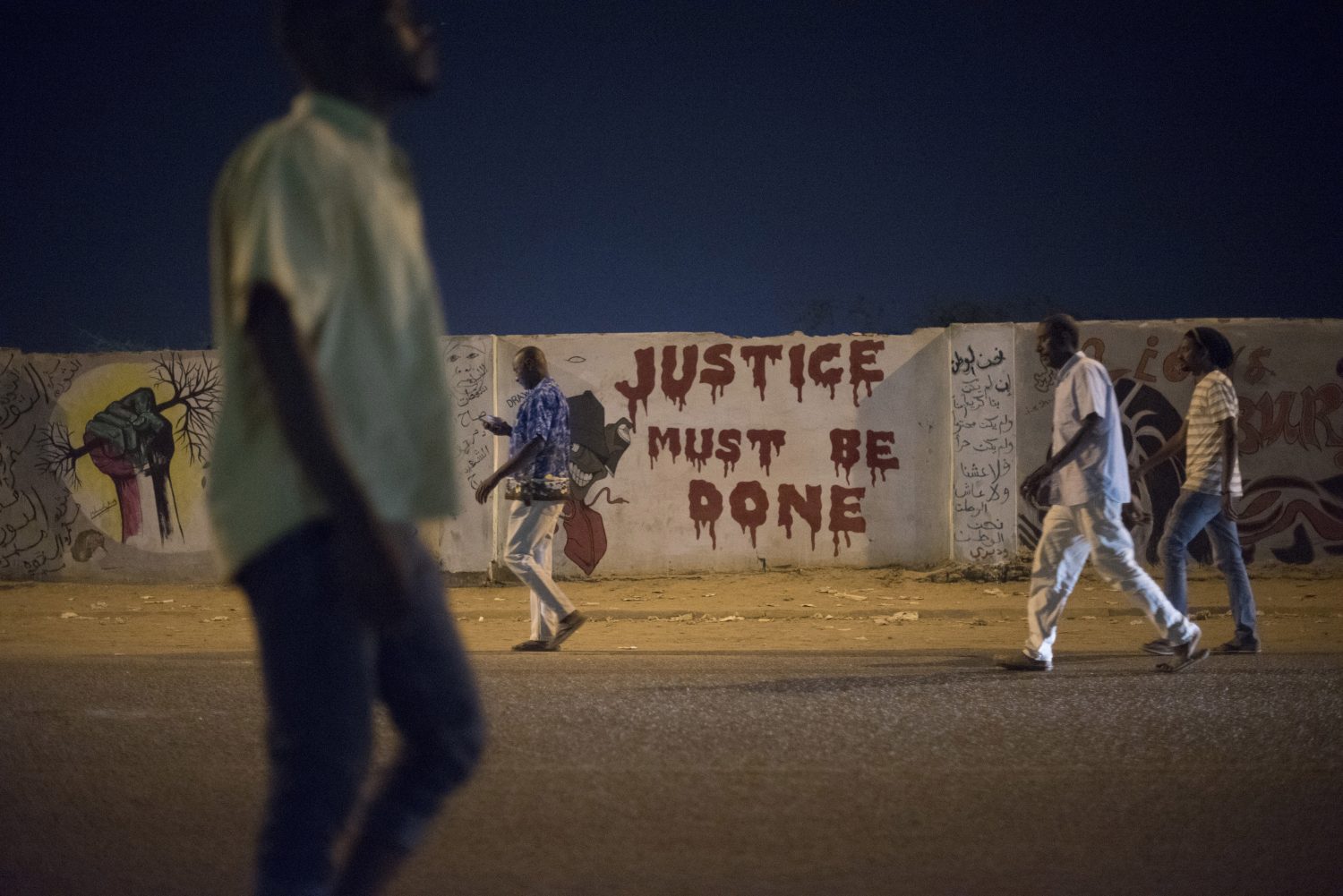
Impunity in Sudan over Enforced Disappearances During the “Khartoum Massacre” Brought Before the UN
As today marks the third anniversary of the “Khartoum Massacre” which took place on 3 June 2019 , REDRESS and Sudanese Archive have written to the UN Working Group on Enforced or Involuntary Disappearances (WGEID) urging it to intervene in relation to the enforced disappearances that took place on and around that date, when Sudanese security forces violently dispersed peaceful protestors outside the military headquarters in Khartoum, Sudan.
The organisations have submitted a joint letter on behalf of these victims of enforced disappearances and their families, highlighting the case of one particular victim, and provide additional information about the human rights violations committed in the context of the government crackdown and the prevailing impunity.
The letter is submitted as part of REDRESS’s broader work monitoring human rights violations committed by Sudanese security forces before and after the military coup on 25 October 2021 in Sudan. Since the coup, protestors have taken to the streets in Khartoum and across Sudan, calling for a fully civilian government. These protests have been met with violence and widespread human rights violations by the Security Forces. The climate of impunity in Sudan has only worsened since the coup on 25 October 2021, with persistent barriers to accountability for these human rights violations.
In the Letter of Allegation submitted to the WGEID, REDRESS and Sudanese Archive request the WGEID to call on the Sudanese de facto authorities to hold the perpetrators accountable and provide redress to the victims of enforced disappearance. In particular, the letter calls on the WGEID, among other aspects, to:
- Obtain information on the steps the Sudanese de facto authorities have taken to investigate the disappearances that took place on and around 3 June 2019, to clarify the events, to produce an official database of individuals still disappeared or missing as a result of these events, and to identify, investigate and prosecute the perpetrators;
- Request that the authorities provide reparations to the victims of enforced disappearance in Sudan including, but not limited to, determining the truth and identifying the fate and whereabouts of the disappeared;
- Request that the Sudanese government amend Sudanese law to comply with its international obligations, in particular those contained in the International Convention for the Protection of All Persons from Enforced Disappearance (recently ratified by Sudan), and to render the rights of victims to redress and to truth effective.
In addition, REDRESS and Sudanese Archive call upon Sudan to:
- Ensure that a genuine, independent and transparent investigation is conducted into the 3 June 2019 events, with the full participation and consultation of victims;
- Ensure perpetrators are brought to justice and barriers such as immunities are lifted;
- Ensure that victims, survivors and people who have lost their loved ones receive reparation;
- Take steps to search for the whereabouts of the disappeared, including by preserving and conducting exhumations in mass graves, and seeking international technical assistance if needed to identify the remains of the disappeared.
About 3 June 2019
In late 2018 and early 2019, nationwide pro-democracy protests took place in Sudan, with protestors calling for the removal of former president Omar al-Bashir and the installation of a new, democratically elected government. From the beginning of the peaceful protests, the National Intelligence and Security Service, along with other Sudanese security forces, attacked multiple protest sites, killing, injuring and disappearing hundreds of protestors.
The protests persisted for several months, even after the eventual ousting of former president al-Bashir in April 2019 and his replacement with a Transitional Military Council. Unsatisfied with this resolution, thousands of peaceful protestors camped outside the Army, Navy and Air Force headquarters in Khartoum demanding full transition to a civilian government.
It was in this context that the peaceful sit-in outside the military headquarters in Khartoum were violently dispersed on 3 June 2019. These events are often referred to as the “Khartoum Massacre”, as the dispersal of the protestors resulted in dozens of deaths and disappearances that are yet to be accounted for by the Sudanese authorities.
Though a National Investigation Committee was established to investigate the events of 3 June 2019, it has been widely criticised for failing to undertake proper and timely investigations, and to date no one has been held to account. The enforced disappearances that took place on or around 3 June 2019 are emblematic of the widespread and systematic practice of enforced disappearance by Sudanese authorities which has been used as a tool for coercion and to suppress civilians and dissent over decades.
To read more about REDRESS’s work in Sudan, see here, or for more information on our work on enforced disappearances in Africa, see here.
For more information, please contact Eva Sanchis, Head of Communications at REDRESS, on [email protected] or +44 (0)20 7793 1777.
Photo credit: David Rose/Panos Pictures
